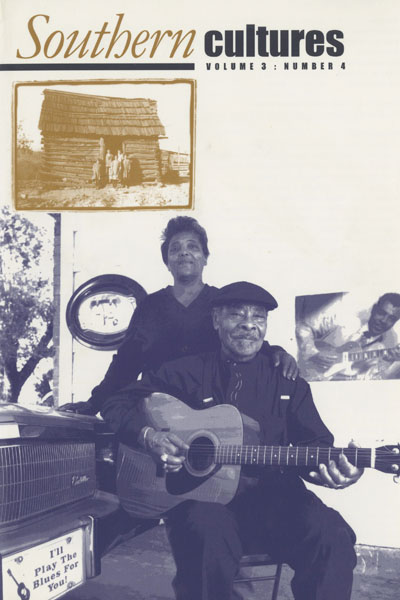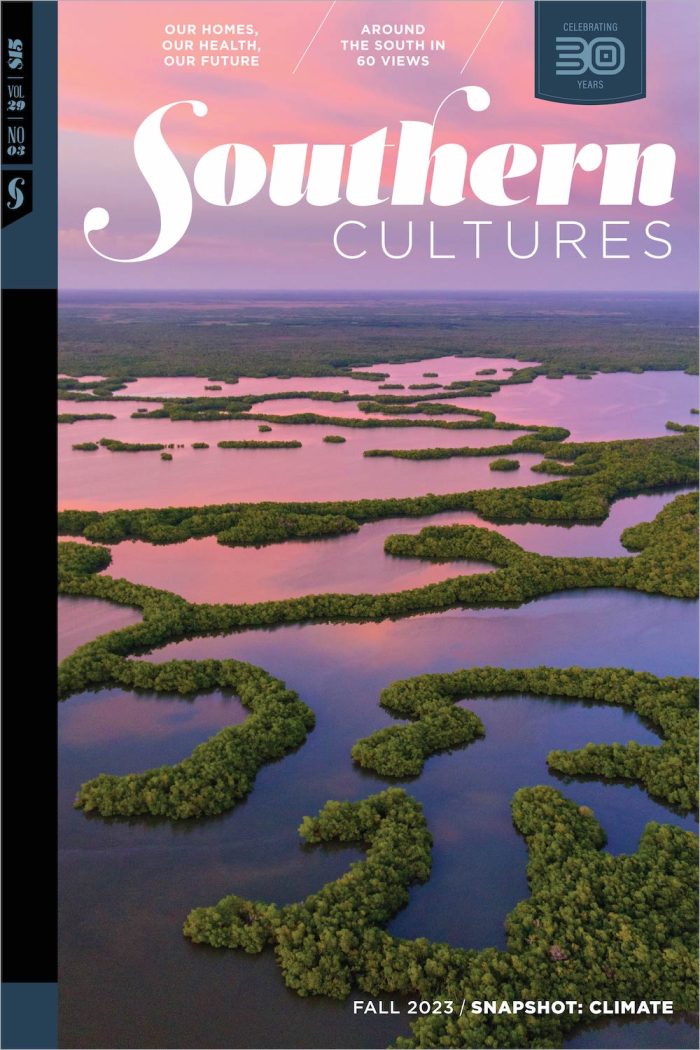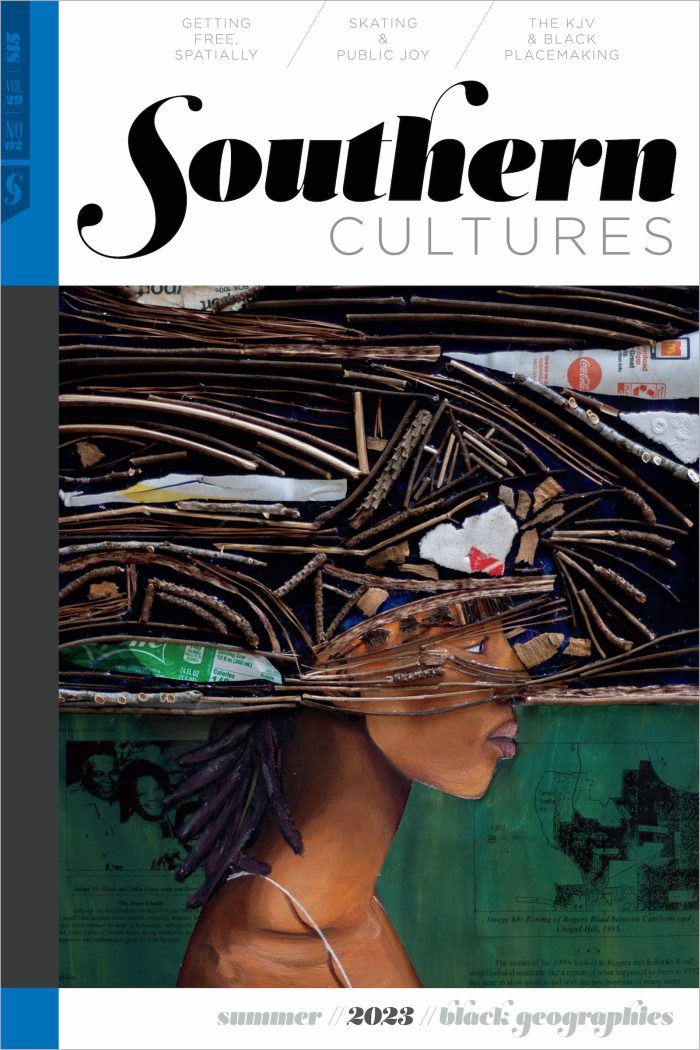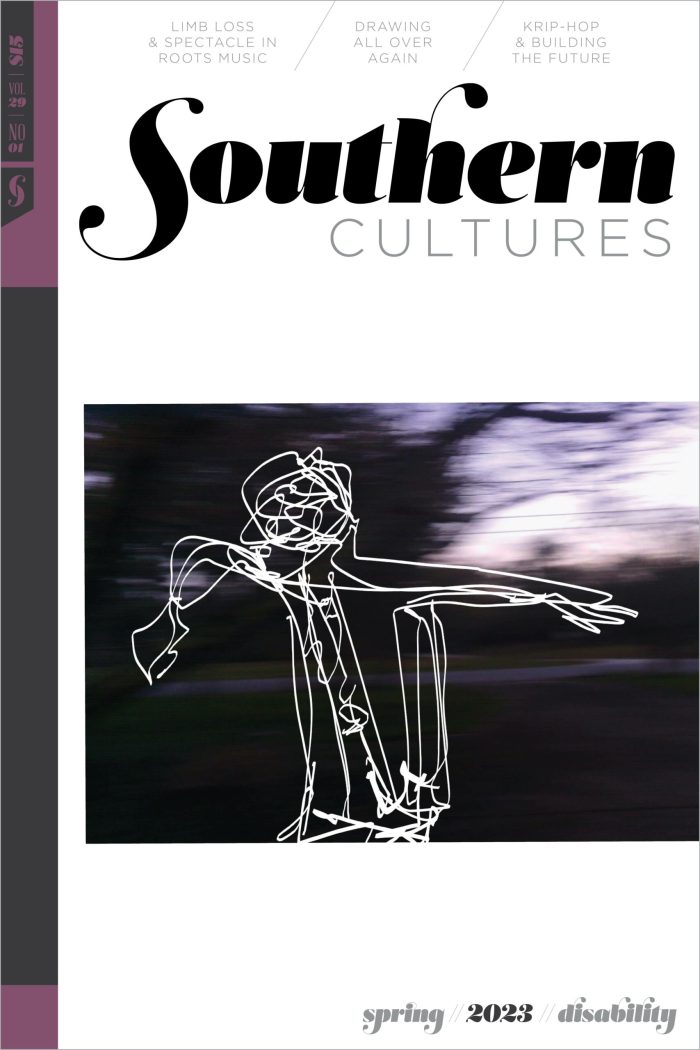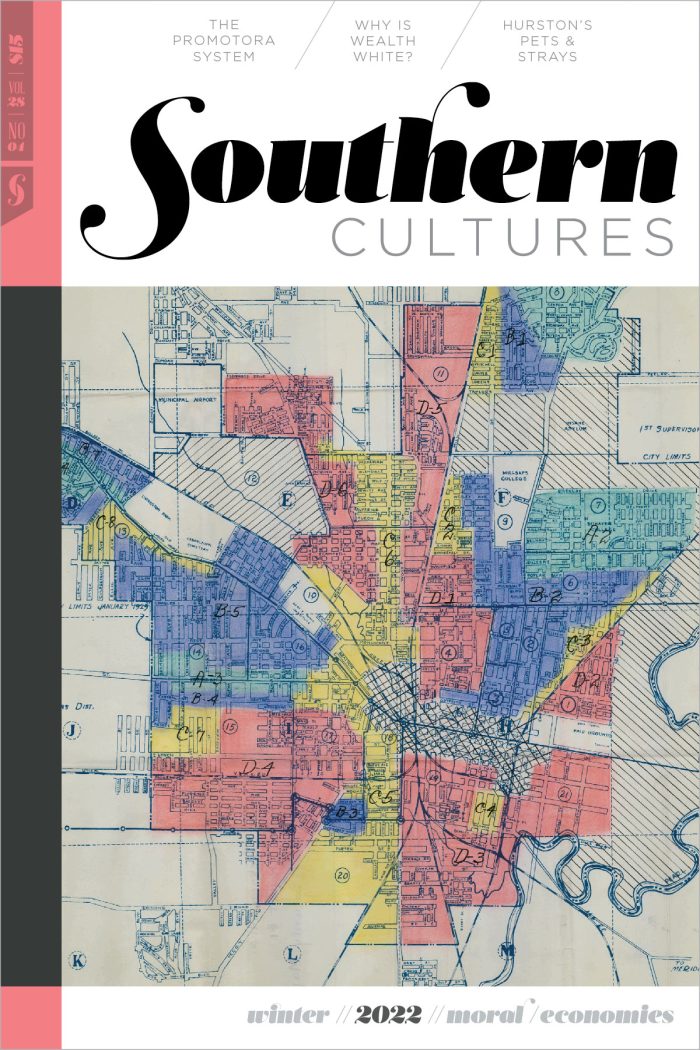BUY ACCESS
by Harry L. Watson
BUY ACCESS
Or, James B. Avirett and the Rise and Fall of the Rich Lands
by David S. Cecelski
BUY ACCESS
by John Shelton Reed
BUY ACCESS
From Region to Race in Southern Liberalism, 1938–1945
by Peter A. Coclanis,
David L. Carlton
BUY ACCESS
by Robert T. Jones Jr.,
Roland L. Freeman
BUY ACCESS
by Tom McHaney
Oxford University Press, 1994. University of Georgia Press, 1994. As he did with his work on southern honor (Southern Honor: Ethics and Behavior in the Old South and Honor and Violence in the Old South), historian Bertram Wyatt-Brown has made two books of very different scale out of his formidable research into the long and »
BUY ACCESS
by Fred Hobson
Center for Documentary Studies in Association with W. W. Norton, 1997 Stories of close friendships abound in American literature—Hawthorne and Melville, Mark Twain and William Dean Howells, Dreiser and Mencken—but few such friendships began so early in life as that between the novelist Walker Percy and the novelist-historian Shelby Foote. They met when both were »
BUY ACCESS
by David Crosby
Routledge Hill Press, 1996 The frontispiece of A Communion of the Spirits is a very familiar image for those who have followed Roland Freeman’s photo-documentary work over the last twenty years. Taken in August 1976, the black-and-white photograph shows Hettie Barnes, a quilter from Wilkinson County, Mississippi, sitting in a rocking chair on her front »
by Amy Turner Bushnell
University Press of Florida, 1995 Jerald Milanich, curator of archaeology at the Florida Museum of Natural History, is the editor or author of twelve books on the early history of Florida, most recently, three hefty volumes: Hernando de Soto and the Indians of Florida (with Charles Hudson, 1993), Archaeology of Precolumbian Florida (1994), summarizing twelve »
BUY ACCESS
by Gilbert C. Fite
University Press of Virginia, 1996 Few aspects of agricultural and rural history have been more thoroughly studied than plantations. Planters and plantations have not only drawn the detailed attention of scholars, but of novelists and popular writers as well. This special interest may be explained because over time plantation agriculture has been associated with slavery, »
BUY ACCESS
by Michelle Brattain
University of North Carolina Press, 1995 In the preface to Gastonia 1929, John Salmond describes his purpose as “simply to tell the story of the events of 1929,” but this book, an elegantly crafted and insightful synthesis, defies such a modest description. Although Salmond provides no new overarching thesis, the work reflects the author’s research into new »
BUY ACCESS
by Ferrel Guillory
Louisiana State University Press The first time I voted in a presidential election was in November 1968, when I drove from Loyola University in New Orleans through a rainstorm to Baton Rouge to cast a ballot in the precinct near my parents’ home. Upon arriving at the fire station at the east end of Government »
BUY ACCESS
by George S. Lensing
Louisiana State University Press, 1996 When I was a teenager growing up in Lake Providence, Louisiana, the biggest event of the year was the Miss Louisiana Beauty Pageant that took place in the local baseball stadium during the Fourth of July weekend. In 1959, however, Miss New Orleans and Miss Monroe and the others had »
BUY ACCESS
by Rachel V. Mills
University of South Carolina Press, 1995; Mercer University Press, 1995; Mercer University Press, 1996 Mary Flannery O’Connor, of Savannah and Milledgeville, Georgia, left in her short life an amazing inheritance parading as southern fiction. Going north to write, she attracted considerable attention in the Iowa writers program and spent valuable time with other appreciative writers »
BUY ACCESS
by John Shelton Reed
BUY ACCESS
The Life of Roland Hayes
by Gavin James Campbell
BUY ACCESS
by Carl D. Kirby
